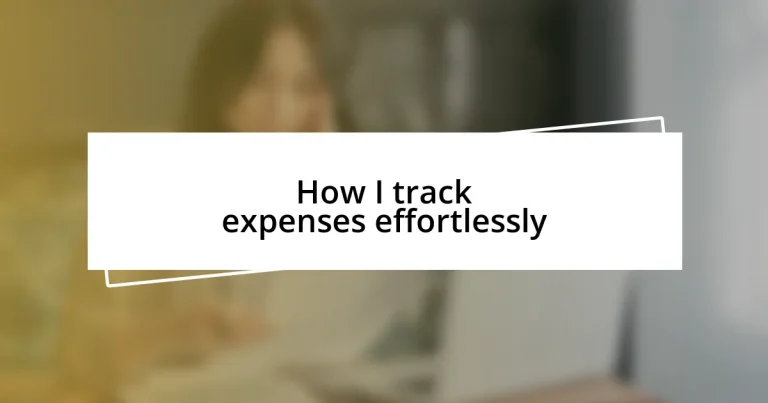Key takeaways:
- Understanding income and fixed expenses while allowing for discretionary spending is crucial for effective budgeting.
- Utilizing expense tracking apps enhances financial management by providing real-time insights and reminders for better control over expenses.
- Regularly analyzing and adjusting the budget based on spending patterns fosters informed decision-making and supports achieving financial goals.
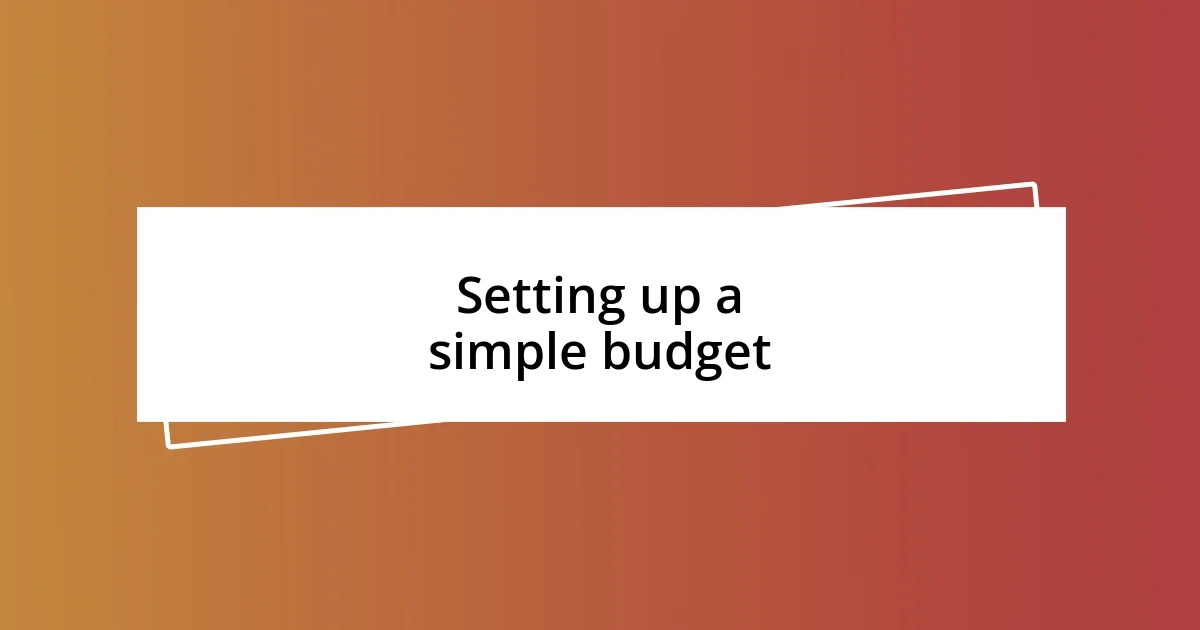
Setting up a simple budget
Setting up a simple budget starts with understanding your income and fixed expenses. I remember when I first laid everything out; it was like shining a flashlight on my financial landscape. Have you ever felt overwhelmed by bills? Breaking them down into categories made it much clearer and less intimidating for me.
Next, I like to incorporate a flexible category for discretionary spending. In my experience, this is where many people stumble. For a while, I didn’t allocate enough for fun activities, which led to guilt every time I spent money. Isn’t it important to enjoy life while managing your finances? Finding that balance helps you stick to your budget without feeling deprived.
Lastly, reviewing your budget regularly ensures you stay on track. I check mine monthly, and I can’t stress enough how reassuring it is to see my progress. How do you celebrate small wins in your financial journey? For me, it’s a small treat or a day out — a little reminder that budgeting isn’t just about restriction, but also about freedom and growth.
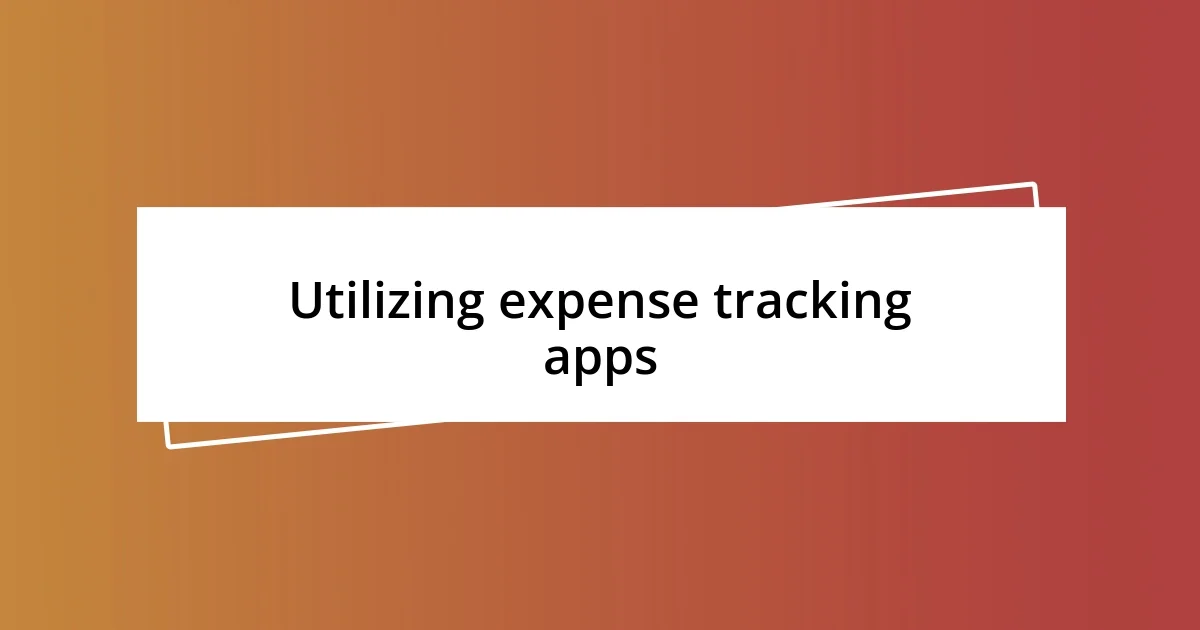
Utilizing expense tracking apps
Utilizing expense tracking apps has truly transformed my financial management journey. When I first discovered these digital tools, I felt a sense of relief wash over me. It was like having a personal accountant in my pocket, streamlining the process of documenting every little purchase. Each time I opened the app, I was met with friendly reminders to log my expenses, which helped me stay on top of my finances effortlessly.
Here are some key benefits of using expense tracking apps:
- Real-time tracking: I can input expenses on-the-go, ensuring I never miss a detail.
- Visual insights: The graphs and charts offer a quick glance at my spending habits, making it easier to identify trends.
- Budget integration: Many apps allow you to set budgets for each category, which keeps my discretionary spending in check.
- Reminders and alerts: These features help me avoid late fees, which I learned the hard way after forgetting a couple of payments!
- Secure synchronization: I love that I can connect my bank accounts securely; it gives me a clear overview without manual entry.
Every time I interact with these apps, I’m reminded of the control I have over my finances. It’s empowering, and I can’t recommend them enough for anyone looking to simplify expense tracking!
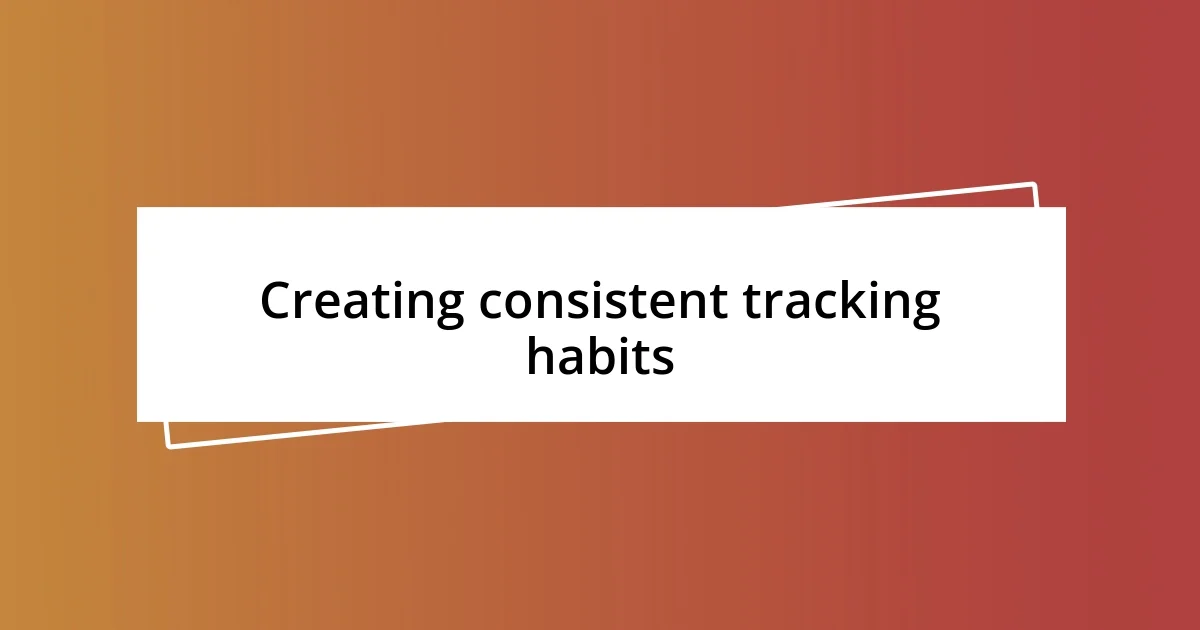
Creating consistent tracking habits
Creating consistent tracking habits is crucial for effective financial management. I’ve found that dedicating a specific time each week to review my expenses has made a world of difference. Initially, I chose Sunday mornings while sipping coffee; it became a little ritual that I looked forward to. Have you ever had a quiet moment that turned into a treasure trove of insights? This simple routine not only keeps me accountable but also allows me to reflect on how I’m progressing towards my financial goals.
Persistence is key, and I sometimes falter, especially after a busy week. Still, I remind myself that every little effort counts. I recall a time when I skipped my tracking session and felt the weight of uncertainty creeping in—suddenly, spending seemed less controlled, and decisions felt rushed. Have you ever experienced that feeling? I realized then that establishing these habits is like building muscle—consistency leads to strength, making it easier to stay on top of my finances.
To reinforce these habits, I leverage visual reminders. For instance, I set a recurring notification on my phone; it’s gentle yet persistent, nudging me to stay engaged with my tracking. These reminders act like a friendly tap on my shoulder, helping me maintain focus on my financial journey. I also like to celebrate reaching my tracking milestones, whether it’s a month of consistency or improving my budgeting skills. Isn’t it amazing how small acknowledgments can motivate us to stick to our goals?
| Method | Description |
|---|---|
| Weekly Review | Set aside a specific time each week to review expenses. |
| Visual Reminders | Use phone notifications or calendar alerts to prompt action. |
| Celebration of Milestones | Acknowledge and celebrate small achievements to stay motivated. |
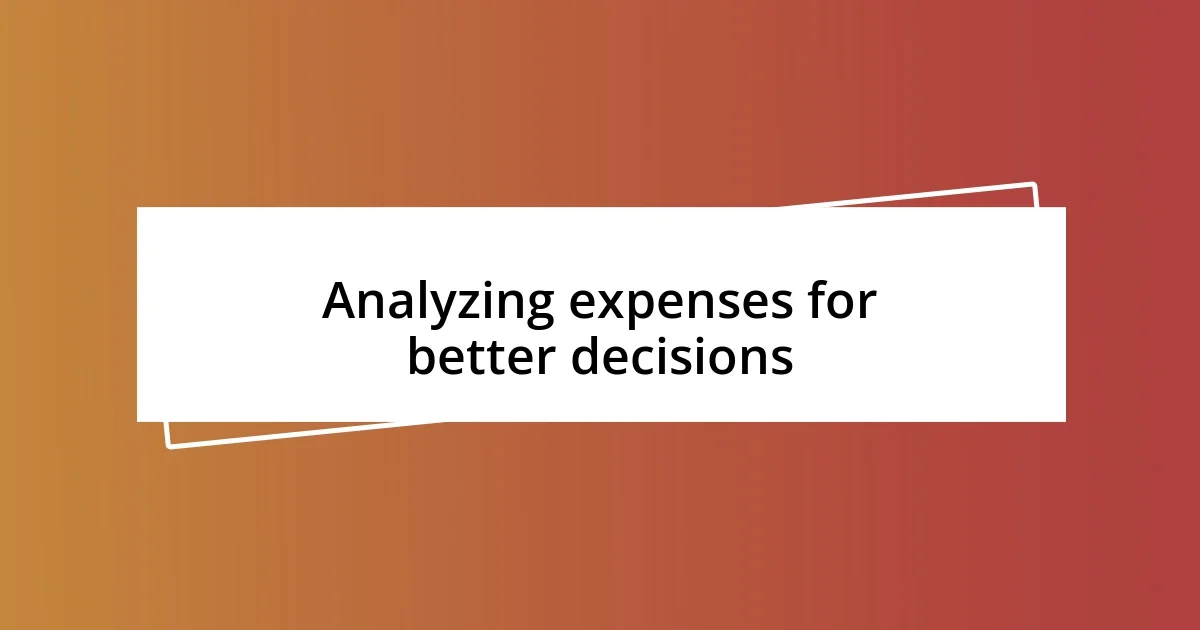
Analyzing expenses for better decisions
Analyzing expenses plays a pivotal role in making better financial decisions. I’ve often sat down with my expense reports, only to find surprises lurking in my spending patterns. Just last month, I discovered that I was spending far too much on takeout, which had become a comforting habit during busy weeks. Isn’t it funny how we rarely question our little luxuries until we see the numbers laid out? It made me reconsider my choices and encouraged me to cook more at home, which also turned out to be a fun bonding activity with my family.
The beauty of expense analysis is that it doesn’t just reveal where money goes; it can also reflect our priorities and values. I remember a time when I felt guilty about spending on entertainment. After analyzing my expenses, I realized that those outings were essential for my mental health, especially during stressful periods. It’s all about balance, right? Finding those moments of joy in our budgeting can often lead to personal growth and better decision-making.
Moreover, looking at the bigger picture can lead to strategic changes in our financial habits. For instance, I initiated a 30-day spending challenge after noticing a trend of impulse buying during sales. This challenge brought awareness to my spending triggers, allowing me to make conscious choices instead of reactive ones. Have you ever tried something similar? The clarity I gained from analyzing my expenses transformed my approach to spending and decision-making, and I can assure you, the sense of control is incredibly liberating.
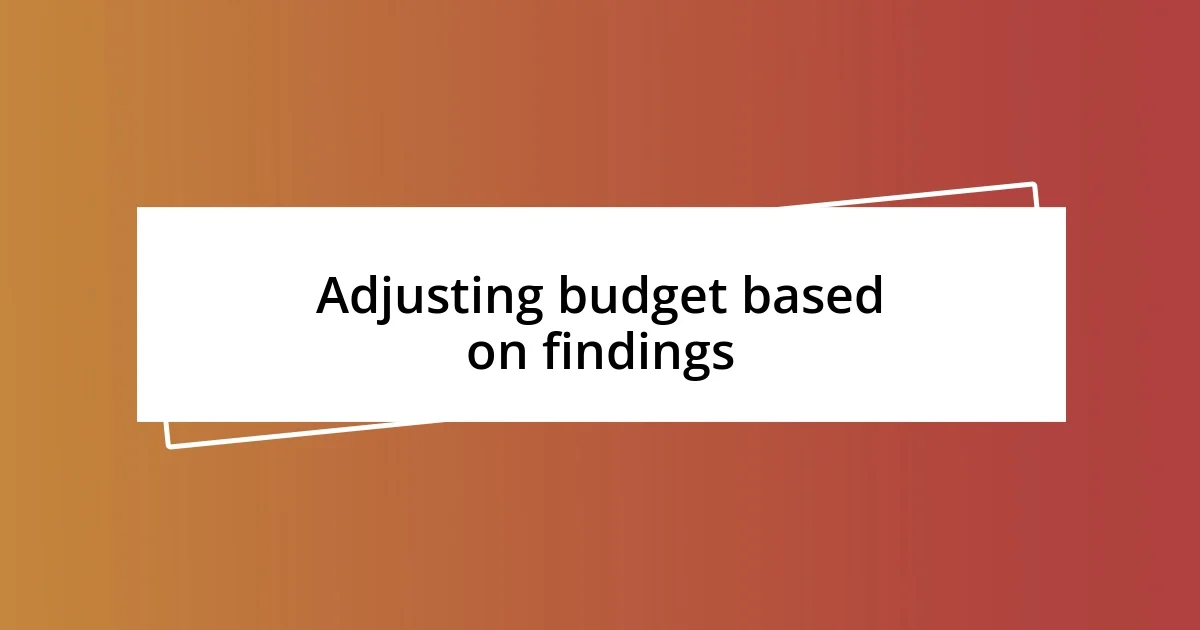
Adjusting budget based on findings
Adjusting my budget based on findings has been a transformative experience. For instance, when I noticed that my grocery expenses skyrocketed month after month, I felt a wave of frustration. Could I really need that much food? I decided to create a more realistic grocery budget, carving out categories for necessities and treats. This not only eased my financial burden but also forced me to become more creative with meal planning. Have you ever found new favorites by stretching your budget?
As I sat down to adjust my budget, I remembered an eye-opening moment when I tracked a month’s worth of spending. I discovered that my coffee shop visits weren’t just a little indulgence; they were eating away at my savings in a way I hadn’t grasped before. So, I swapped my daily lattes for a homemade version. This shift not only saved me money but also ignited a newfound interest in brewing the perfect cup at home. Isn’t it amazing how budget adjustments can lead to unexpected joys?
The most rewarding part of refining my budget is witnessing the impact on my financial goals. For example, after reducing unnecessary subscription services, I was able to allocate those extra funds toward a small vacation I’d dreamed about for years. Each adjustment felt like a small victory in my financial journey. It makes me wonder, how satisfying is it to align spending with what truly matters to us? If only I had realized sooner how open budget adjustments can pave the way to fulfilling experiences.












